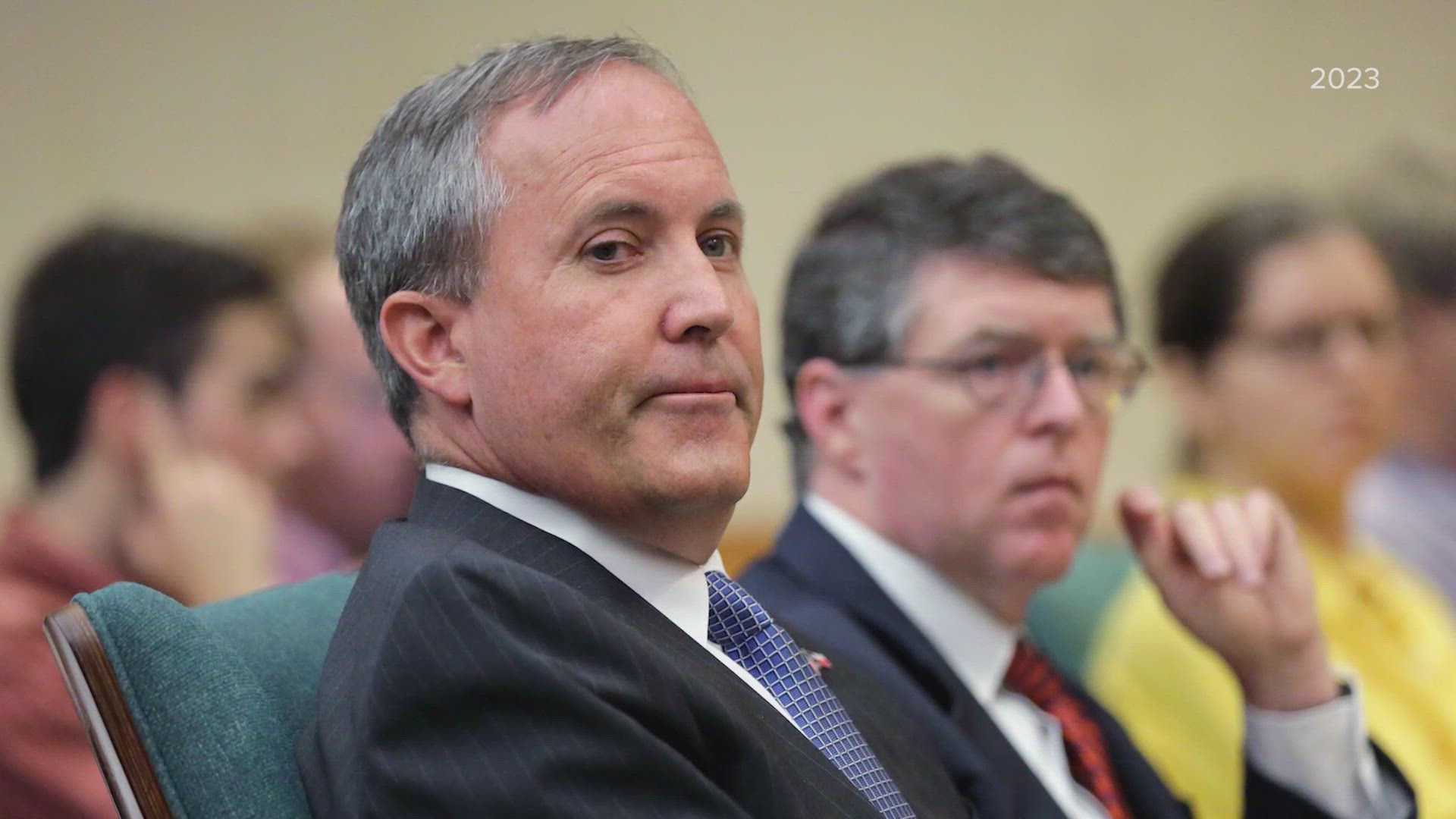AUSTIN, Texas — It was not conduct, but a court document – this 10-page settlement -- that led to this moment in Texas history.
If Attorney General Ken Paxton had not asked that taxpayers cover the $3.3 million he agreed to give four whistleblowers, we would not be here.
Those whistleblowers are attorneys who worked in the Office of the Attorney General.
They witnessed what they believed to be a pattern of Paxton misusing his office to the benefit of Nate Paul, an Austin real estate developer who’d donated to his campaign.
When those employees reported Paxton’s alleged behavior to law enforcement, they say Paxton retaliated, slandered them, and reassigned or fired them.
They sued.
That all happened in 2020.
In 2023, the whistleblowers and Paxton agreed to a settlement.
Lawmakers were just weeks into a new legislative session in February 2023, and Paxton appeared before the House subcommittee responsible for making budget decisions about his agency.
Committee members, aware of the $3.3 million he requested for his agency to pay the settlement, asked him several questions in an apparent attempt to determine whether it was a prudent use of taxpayer money.
“Just trying to get some clarity, is the case against the state of Texas or is it against Gen. Paxton?” asked State Rep. Jarvis Johnson, a Democrat from Houston.
Paxton did not reply.
Instead, one of Paxton’s top assistants sitting beside him at the witness table did.
“The case is against the state of Texas,” said chief of litigation Chris Hilton. “And that’s true of any whistleblower act employment case. That’s the law that this body passed.”
Moments later, Jarvis followed up with a direct question to the attorney general.
“If in fact the state, this body, does not vote for it, Gen. Paxton, would you be willing to pay for it out of your campaign account?” he asked.
Again, the response came from Hilton.
“I don’t want to speak for the attorney general. I’ll just say there is no whistleblower case where any individual has paid anything because the individual is not liable under the terms of the statute,” Hilton said. “Also, under the terms of the settlement, there is no admission of fault or liability or wrongdoing by any party which is typical for settlements of these types of claims.”
Unconvinced it was a proper use of public money, the General Investigating Committee of the Texas House quietly hired a team of five former prosecutors and detectives to determine if the lawsuit itself had merit.
If it was frivolous, perhaps lawmakers would have felt inclined to fund the settlement.
“We were asked not to prove and not to disprove the allegations, but to follow the evidence and determine if there was a there there,” said Erin Epley, chief counsel for the General Investigating committee, during a late May committee hearing where the team’s findings became public.
Epley led the team of five investigators who worked on what the committee deemed “Matter A.”
The team spent weeks conducting interviews with the whistleblowers and other employees of the Office of the Attorney General.
They worked in secrecy until the final days of the legislative session.
In that three-hour hearing on May 24, the secrets came out.
The investigators laid out evidence they said proved the lawsuit did have merit and proved Paxton misused his office.
At one point, Committee Chair Andrew Murr, a Republican State Representative from Junction, asked an investigator to summarize what one of Paxton’s employees claimed the attorney general had said.
“Did you just state, and I want to be very clear, that the attorney general for the state of Texas said he did not want to use his office to help law enforcement?” Murr asked.
“That is exactly what was relayed to us,” said Terese Buess, a member of the investigative team said.
Later, Committee Co-Chair Ann Johnson, a Democrat who represents Houston in the House, was even more blunt.
“Is it fair to say the OAG’s office was effectively hijacked for an investigation by Nate Paul through the attorney general, Ken Paxton?” Johnson asked.
“That would be my opinion,” Epley replied
Three days after the hearing, in a bipartisan vote with 60 members of Paxton’s own party voting yes, the full Texas House impeached him.
Members of the General Investigating Committee issued a memo that included this quote: “But for Paxton’s own request for a taxpayer-funded settlement over his wrongful conduct, Paxton would not be facing impeachment.”
So the tipping point was Paxton’s ask, not his actions.

